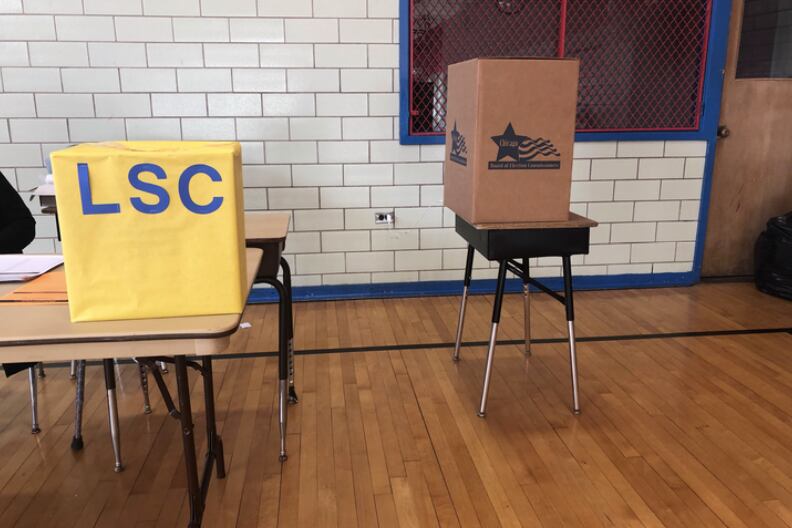Participation in this year’s election for Chicago’s Local School Council dropped dramatically in the grip of the COVID-19 pandemic, according to newly released district figures.
More than 35,000 parents, staff, students, and community members voted for council candidates at more than 500 schools this fall, a decrease of about 43% from the 2018 election when about 61,000 people voted.
As of Dec. 17, district officials said 4,719 seats were filled, while 947 remained empty following the election. As of this month, there are 23 post-election challenges taking place at 17 schools.
The figures released this week by Chicago Public Schools paint a stark picture of the ongoing drop in engagement around LSCs, the hyper-local, mini-democracies that are given authority over budgets and principal hiring in most Chicago schools. The numbers also highlight the difficult circumstances around both timing and administration of this year’s election.
After the election was initially delayed from the spring due to the COVID-19 outbreak, Chicago Public Schools was forced to develop an impromptu mail-in voting system that some voters said was confusing and poorly managed. The actual date of the election came as COVID-19 rates were climbing, city residents were being urged to stay home, and only weeks after the chaotic presidential election.
Still, even as the district saw a drop overall, voter turnout depended on who was casting the ballot.

This year, district officials blamed lower-than-expected turnout on the COVID-19 pandemic. They said they had taken “unprecedented measures” to make voting accessible, including mail-in ballots for parents and staff, digital voting for students, and curb-side voting options for in-person ballots.
But a report written with Chicago Lawyers’ Committee for Civil Rights and Raise Your Hand, a community group that offers training courses and informational documents about the elections as part of a citywide coalition, said the district’s administration efforts fell short.
Based on the results of a survey with 219 responses from 162 different schools, the group said both candidates and voters found the election process confusing. The report said there was a lack of training ahead of the election, difficult instructions on filling out mail-in ballots, and a shortage of trained staff. “It is a disappointment that the district did not meet this moment with the level of seriousness, integrity and transparency LSC elections deserve,” the report said.
This is part of a larger slow slide in engagement around Local School Councils for several years.
When there are vacancies for teacher, non-teacher staff, and student seats, the district Board of Education receives nominations from advisory polls taken by school staff and students. When there are vacancies for parent and community member seats, the newly elected council members must handle the appointments.
In the last election, roughly 560 parent and community member vacancies remained when polls closed.
Moving ahead, Raise Your Hand said it wanted more communication on plans and procedures, broader access to all voting methods, and more training for election judges, among a list of other demands outlined in its report.
The newly elected council members will begin serving in January 2021.







